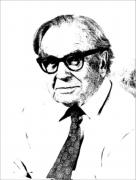|
|
||||||||||||||||||||||||
 |
Featured person
Recently added |
Sir Daniel Dixon (1844 - 1907): |
||||||||||||||||||||||
Daniel Dixon was a highly successful timber merchant and ship-owner; from a County Antrim family - variously of Cushendun, Ballycastle and Larne, in which last Daniel's father Thomas had a shipping and timber business. The third son of four, Daniel attended the Royal Belfast Academical Institution, and then followed into the family business, Thomas Dixon and Sons, becoming a partner in 1864. This business was quite considerable and said to be the largest timber merchant in Ireland. In 1879 the company founded its own shipping firm, Irish Shipowners Company, Ltd, known as the Lord Line, which operated services between Belfast, Dublin, Cardiff and Baltimore, and also ran to the Gulf of Mexico and South America. This shipping firm was wound up in 1917, at the height of the First World War.
In 1872 he was elected to the Town Council of Belfast for Dock ward, elected alderman in 1881 and Mayor of Belfast in 1892. Belfast, expanding rapidly due to its industrial success, had been granted the status of City by Royal Charter in 1888, and in 1892 there followed a further Royal Charter elevating its first citizen to the status of Lord Mayor; Dixon, the incumbent, was re-elected for 1893 (at that time the twelve-month term of office for the Mayor or Lord Mayor of Belfast was the calendar year, unlike today when the new Lord Mayor is elected and takes office mid-year) as Lord Mayor. In the course of his term of office he withdrew from local politics because of what have been described as differences over labour questions. He later returned to the local political scene however, serving as Lord Mayor in 1901, 1902, 1905 and 1906.
Created 1st baronet Dixon of Ballymenock in 1903, he was active in commercial life, including the Ulster Marine Insurance Company and the Belfast and County Down Railway, as well as civic life in Belfast, apart from the City Council - as a Harbour Commissioner (he was President of the Belfast Harbour Commission in 1904-5), active on committees organising the construction of the resplendent new City Hall, Purdysburn Hospital, and the new St Anne's Cathedral (whose nave was consecrated in 1904).
He also competed, not without controversy, in national (that is, United Kingdom-wide) politics, and Dixon it was who was one of the contestants in the 1905 North Belfast by-election. The incumbent MP, Irish Unionist (that is, Conservative) Sir James Horner Haslett, had died, and members of the burgeoning Labour movement in Belfast decided to field a candidate in the ensuing by-election. At this time, labour movements were growing rapidly in Belfast - in 1899 half of all affiliated trade unionists in Ireland as a whole worked in Belfast, then one of the most significant industrial powerhouses in the world - and felt confident enough to challenge for a seat at Westminster. The candidate selected was William Walker, a prominent Trade Unionist and socialist. Dixon was seen as unsympathetic to labour causes, to the extent that the Liberal Unionists and the Belfast News-Letter (a leading Belfast Unionist newspaper) were opposed to him. Moreover, Dixon was rumoured, along with his wealth and attendant flamboyant lifestyle, to have rather "lax morals" according to the standards of the time. Walker for his part made a tactical error during the campaign, exposing his equation of Roman Catholicism with "superstition", an opinion which at the time might well have endeared him to some Protestant opinion but had the opposite effect on Catholics and their votes.
At the General Election the following year - the election of the overwhelming Liberal landslide - Dixon again clashed electorally with Walker, this time after having successfully sued for libel a Labour newspaper, Labour Chronicle, which had carried an article, entitled "Dodger Dan's Deal", alleging windfall profits culled by Dixon from land sales to Belfast Corporation. Dixon won the seat, though with a slender majority.
Dixon died in March 1907, and was succeeded in the baronetcy by his son Thomas James. (whose mother died shortly after his birth in 1868; Dixon remarried and had nine further children, including Herbert Dixon who was to become 1st Baron Glentoran of Ballyalloly). Sir William Hamo Thorneycroft's bronze statue of Dixon stands in the grounds of Belfast City Hall.
| Born: | 28 March 1844 |
| Died: | 10 March 1907 |
| Richard Froggatt |


Home | Our Policies | Plaques | Browse | Search | Sponsors | Links | Help | Contact
Privacy & Disclaimer | Cookie Policy | Site Map | Website Design By K-Point
© 2024 Ulster History Circle









